|
We’re well into the first week of Advent, and if you’re like me, you’re probably sick of all the Christmas displays and music and consumerism that has bombarded our senses since November started. As an American, it’s always been easy for me to get pulled into the secular world’s excitement about Christmas, its eagerness to get started with all the partying, eating, gift swapping, caroling, and general Christmas cheer. But as I’ve deepened my faith as a Catholic, I have found that the more focus I put on Advent as a time of preparation for Christmas, the easier it is to block out the unending secular Christmas noise and ready my heart, my home, and my family for the coming of the Christ child. For most people, the phrase “preparing for Christmas” probably evokes memories of setting up Christmas trees and hanging lights outside, wrapping gifts, or organizing the ideal Christmas classics playlist. And while those things certainly count as preparation for Christmas, won’t we suffer burnout—or what I have seen referred to as “the holiday hangover”—if we spend all of November and December with our house decked out for Christmas and with Christmas music playing all day long? I know I would. A few years ago, as I was researching Catholic Advent traditions that I could incorporate into my family’s liturgical life, I decided that I ought to shift our emphasis from when to set up the Christmas décor and instead focus on the spiritual longing and the growing excitement for the arrival of the Messiah. Traditionally and liturgically, Christmastide lasts many days—at the very least until the Epiphany, but usually until the Baptism of the Lord. Why not leave the Christmas celebrations until Christmastide and focus on the preparation during Advent? Israel spent countless years in hopeful anticipation of the savior—is it really so difficult for me and my family to spend four weeks emulating that same sense of joyful expectation? The Catholic Church has so many symbols and traditions from which we can draw to prepare our hearts and homes for Christ. In our house, we not only light the Advent wreath every night, but we darken the dining room lights in order to emphasize the light that Christ brought when he came into the world. We also recently implemented the Jesse Tree—a tradition I did not grow up with, but one that I have come to love because it condenses salvation history into a timeline that is easy even for my children to follow. We don’t listen to Christmas music during Advent, choosing instead to listen to Advent music. We read children’s books that discuss the animals’ preparing the barn before the Nativity, or the journey that Mary and Joseph took before Jesus was born. When we experience Advent in this way, the anticipation for Christmas builds with each passing week. As Christmas Day draws closer, we start baking and freezing the Christmas cookies to be eaten during Christmastide and to be given as gifts at Christmas parties. I take time to plan out special activities for us to do during the twelve days of Christmas, or special meals I know everyone will enjoy during that time. We pray the O Antiphons. We make or buy gifts for our loved ones, and we talk about how giving gifts to our loved ones is a reflection of the great gift of Jesus, who was given to us on Christmas Day. In this way, when we finally decorate the house on Christmas Eve, we are all practically bouncing with excitement—and not just about presents, but about the miracle of Christ’s birth. Our children’s—and our own—sense of wonder is bolstered and preserved by our not celebrating too early. By steeping ourselves in the history of the first Christmas and by maintaining that same sense of watchful hoping and waiting, we can more fully appreciate the wonder of the arrival of the promised Messiah. **This post was originally published on 12/3/2019**
0 Comments
I recently learned that a medical condition (that I have suffered from for most of my life) might be greatly improved or even completely healed via a major diet overhaul. Although I may one day be able to reintroduce some foods back into my diet, it is difficult for me to face giving up many of my favorite foods for several months, years, or even forever.
On reflecting and praying about my reluctance and fear about this daunting task, I realized that my personal struggle with my physical health is analogous to the human soul’s struggle with concupiscence and sinfulness. My body has been growing progressively sicker over nearly two decades, with symptoms that none of my previous doctors had been able to explain. But I have been so sick for so long that there were times (usually in between the worst flare ups) that I convinced myself everything was manageable, or even that it was all totally fine and normal. But during the worst flare ups—whose pain or duration I could never anticipate and for which I never had any warning—I would be in so much pain that I could sometimes barely function. In a similar way, mankind clings to sin. Why do we hesitate to put aside the things that keep us from God? Why is it so hard for us to simply reject our sins and turn to a deeper relationship with our loving Creator? Like me with my medical condition, I think we can become so used to our vices—to how it feels for our souls to be sick from repetitive sins—that we convince ourselves that turning back to God and casting aside our sinful habits is too difficult and would not make us any more joyful or free. Choosing the healthier or holier life is difficult. Establishing good habits always seems to take more effort than establishing or sliding back into bad ones. Of course, it does not help that temptations abound in the temporal world; inflammatory foods are the easiest and cheapest things at the grocery store and are laced throughout restaurant menus. Likewise with temptations to sin: the ubiquity of screens and social media, which can create barriers to personal relationships and wipe out our daily prayer times; the constant push to place religious devotion with devotion to ‘things’, the pressure to ignore the natural moral order in favor of the self and the self’s pleasures. Because we are a fallen race, we often seem incapable of rejecting short-term pleasure in favor of long-term gain. I know my health will drastically improve if I permanently remove the inflammation-triggering causes from my life, but somehow the very process—the sacrifice itself and the initial withdrawal I will surely feel as I miss that old diet—seems like too much to bear. How can I ever survive without donuts after Mass sometimes? How can I possibly stop eating cheese? Maybe I can just take a pill instead and keep on living my life how I want to. It’s like this with our vices, too: How can I give up this behavior or this selfishness that is rooted in my heart? I know I should put down my phone and pray, but I’ll do that in five minutes (or thirty, or sixty). There isn’t really any need to change my lifestyle to be a stronger follower of Christ, is there? And besides, wouldn’t my hundreds of Instagram followers miss me if I stop posting photos five times a day? Entering into a deeper relationship with God demands radical changes of us. I eventually realized that my physical health is also tied to my spiritual health. God gave me this unique body, fearfully and wonderfully made in His own image, and it is my responsibility to care for that gift by treating it well—by seeking to heal it in the ways that are available to me and to which God has slowly led me over the past ten years. If I know that my soul is sick—and that more stuff, more screen time, and more licentiousness are not going to heal me—should I not put my sinfulness or woundedness into the hands of the God who will heal me? Maybe it will take years for my body to heal. Maybe there are some things that I will never eat again, while others I will be able to tolerate on occasion or even fully reincorporate into my daily diet. But, in physical as well as spiritual health, I won’t ever find out what it feels like to be healed unless I commit to getting rid of the things that are holding me back. Before Lent 2021 began, I had fallen into a habit of making excuses for my weaknesses, the biggest of which was: "I would be able to have the spiritual life I want if I didn't have three children, a husband, and a household taking up all of my time!"
The idea of spending most of the day in quiet or chanted prayer is attractive—especially now, when I have a husband, a house, and three children. St Frances of Rome would have understood this—as a preteen she desperately wanted to be a nun, but her family arranged a marriage for her instead; rather than entering the convent, she entered a wealthy and connected family. Frances never let go of her devotion to God, although she did eventually grow into and embrace her temporal vocation as the manager of a wealthy and influential Roman household. She found a balance of work, prayer, and asceticism that she could incorporate into her daily life. For Lent this year, I decided to imitate St. Frances and take a page from her playbook, incorporating more prayer into my daily work and adding ascetic practices that are realistic for my current phase of life. I have a specific time of day for meditative and personal prayer with God that I try to maintain every day, but in addition to that, I have been trying to intertwine work, prayer, and asceticism whenever I can. Instead of listening to current events podcasts when I do the dishes, I am using one of these abacus style kitchen rosaries so that I can pray while I work and so that I can keep track of where I had to stop when I was interrupted by the needs of my children. Instead of scrolling through social media or aimlessly puttering around on my phone while I nurse the baby, I am working my way through St. Ignatius of Loyola’s Personal Writings. I may not be able to fully partake in Lenten fasts due to my nursing baby, but I can avoid snacking whenever possible—and when I have to watch my children eating my favorite granola bars while my stomach is starting to rumble, I try to offer it as a prayer and remind myself that small acts of self-denial prepare us for big acts of self-denial. Other ideas for minor ascetic practices that we can add to our Lenten promises (or Fridays in Ordinary Time) include: taking cold or cool showers instead of hot ones, not eating any sweets or desserts, not using a pillow at night, and adopting more days of the week when we abstain from meat. St. Frances of Rome is quoted as saying, “A married woman must, when called upon, quit her devotions to God at the altar to find him in her household affairs.” This is definitely true for me; doing the laundry, cooking the meals, and giving the reading lessons are my responsibilities. I can show my love for God by loving my family and by making these humble sacrifices rather than neglecting my duties in favor of carrying out an arbitrary set of devotions every day. As we continue on our Lenten journeys, I encourage you to think about how you can incorporate more prayer and asceticism into your daily routines. For more resources to accompany you this Lent, please click here. For more resources on Marriage and Family, please click here.
I had my third baby in the spring, during the first phase of our area’s government-mandated shutdowns. As with my previous two children, I often found myself tiredly scrolling through social media during countless midnight nursing sessions. And everywhere I looked, I saw discord. Strangers on the internet “crushed” each other with one-liners, ignored or belittled those with whom they disagreed, and twisted the meaning of words to suit their argument’s ends. But I also saw members of local church communities getting into heated arguments that were exacerbated by the email writers’ inability to see each other and hash out their ideological disagreements in person. “Is civil discourse completely dead?” I wondered to myself.
It’s easy to think that if we just say the right thing at the right time our interlocutor will see the error of their thinking and agree with our side of the argument, or that if we pummel our interlocutor with the harsh and unadulterated truth that they will be overwhelmed and converted like St. Paul on the road to Damascus. The ability for everyone to have a voice in the public square via social media and to be able to interact with virtually anyone, at virtually any time, on virtually any topic, has warped our society’s self-control about when, and how, and about what to offer an opinion. Appropriately for this topic of charitable dialogue, today is the feast day of St. Thomas Aquinas, thirteenth-century philosopher and theologian and one of the greatest minds the Catholic Church has ever known. He was exemplary in his efforts to understand and articulate opposing viewpoints and to be thorough and charitable in his defense of faith through reason. Each broad topic he addresses in the Summa Theologiae, his magnum opus, is broken into more specific questions, which are broken into even more specific questions called articles, and for each of these articles Aquinas offers well-thought-out objections before he states his own thesis and then replies to each individual objection. What a difference from our modern culture that is steeped in out-of-context sound bites, Twitter smackdowns, unnecessary generalizations, and logical fallacies! If our calling as followers of Christ is to reflect Christ for others and to evangelize, we ought to be intentional about how we may be the face of God for someone else. If I am the only Christian someone is going to encounter that day—be it in line at the grocery store or on a Facebook comment section—how would I want that experience to be? Sometimes I need to remind myself that no matter how willfully defiant my child is being, no matter how obtuse my acquaintance’s social media post is, that they are unconditionally loved by God, and I am called to love them too. Personally, I have learned not to engage at all in a potential argument on social media. And when I do have disagreements with others, like St. Thomas Aquinas, I try to make sure that I understand the scope of my opponent’s reasoning and what he or she is actually trying to argue before I respond. It is possible to be charitable toward and understanding of others without abandoning the Truth or condemning everyone around us. Perhaps most importantly, I have learned that the virtual world of the internet and social media is best when used to support our lives and relationships in the real world, not as a replacement for them. As we continue into this new year of 2021, I encourage you to think about how you can charitably engage with those you may not agree with. May we look to the model of St. Thomas Aquinas as we seek to evangelize today’s culture with love. Can you believe we are already in the fifth week of Lent? Personally, this year’s Lenten season has flown by for me. While I have not always held fast to the Lenten observances I chose for myself, I can already see the fruits of the changes I have been able to maintain. This year for Lent, I have begun working my way through the Bible using a program which breaks the Scriptures into easily-digestible daily segments from both the Old and New Testaments. Most of what I’ve read from the Old Testament so far has been very familiar to me—stories from creation to the great flood and Abraham and his successors. But what has struck me, as I’ve slowly progressed through the books of Genesis and Exodus, is the lack of trust that has plagued the human race since its creation. Reading these Bible passages has often left me pondering why mankind struggles so much to trust God. Adam and Eve fell for the serpent’s lies about the forbidden fruit instead of trusting that God knew what was good and appropriate for them; Abraham tried to jumpstart his promised line of innumerable progeny by having a child with his wife’s servant because his wife was supposedly incapable of bearing any children. Today’s first reading, from the Book of Numbers, continues these themes of distrust. “With their patience worn out by the journey,” the Israelites complain that they were rescued from slavery only to be left to die in the miserable desert, and that even the food the Lord has provided them is disgusting and wretched. I have found these particular stories from the Old Testament striking because they ring true for my own life; when I find myself in a difficult situation over which I have no control, I don’t always maintain my trust in God. I feel helpless because there is nothing I can do to change things, or I cannot fathom why things are unraveling in the way that they are. And, like hundreds of generations of the human race before me, I turn to the world first for answers instead of coming immediately to God. I usually end up complaining, and often times I prefer to question why He is treating me this way and do not trust that there is some good to come out of it that I cannot yet, and may not ever, see. In fact, I think this may be the heart of mankind’s trust issues: one of the hardest things for us to do is to have faith in God when we cannot see the whole picture, or do not understand what is going on, or cannot understand what God could possibly mean by calling us in the way that He does. But we do not need to see the whole picture in order to be faithful followers of Christ. We do not need to control the situation in order to get what God promised us. We can use our times of suffering, or times of feeling excluded from God’s plan, to bring ourselves closer to God. Instead of asking God why He has not done more for us, like the Israelites did in the desert, we can ask Him to show us what good our suffering could bring. And instead of trying to put ourselves on a more equal footing with God, like Adam and Eve or Abraham and Sarah did, we can ask God how best we can serve Him. Today, as we continue to navigate the incredibly difficult situations around us caused by the coronavirus, let us place our trust in God once more and turn to him in our time of need. I pray that this may be a fruitful time of growth in your relationship with God and that we may emerge from this time stronger in our faith, hope, and love. For more resources to accompany you during this time, please visit our Coronavirus Resource page. Lent starts next Wednesday—do you feel ready for it? Maybe you have your Lenten battle plan prepared and are feeling ready to crush your spiritual and penitential goals this Lenten season. Or maybe you are more like me—you’ve given it some thought but haven’t come up with much yet, and you might just pick something, anything, to do in order to make the liturgical season feel different from the rest of the year.
Either way, I think it’s helpful to take a step back and assess what we plan to undertake for Lent, why we are choosing those things, and how to best go about deepening our relationship with God and embracing the penitential nature of the season. The Church in her wisdom has already given us guideposts for how to structure our spiritual renewal during this season: Lent is known as the liturgical season for “prayer, fasting, and almsgiving.” If we aren’t feeling prepared to dive into Lenten penances, it can be tempting to ask what others are doing and just follow them or commit to doing something that seems appropriate for the season. But as we enter this last week of Ordinary Time before Lent begins, I encourage you to spend time in prayer and quiet reflection to really focus on those areas that you need to work on to grow closer to God and to be a more faithful follower of Christ. Here are some ideas for discerning what to undertake this Lenten season: Prayer Prayer is probably the easiest to take on when deciding what spiritual practice to do for Lent with the intention of continuing afterward. For example, there are “classic” Lenten observances you can easily plug into, like the Stations of Cross, that you can commit to praying regularly. I try to choose my Lenten prayer regimen based on what has been on my heart or what I have felt drawn toward but have yet to act upon. For example, maybe you feel that you don’t know the Bible as well as you would like to. You can check out the daily readings here, or listen to or watch a short reflection on them. Or you can commit to praying the rosary several times a week (or daily), using a Scriptural rosary or iconography to help you focus. Fasting Before I matured in my faith, I thought that “fasting” essentially meant: “One full meal, two small snacks, get through Ash Wednesday and Good Friday and then you don’t have to be hungry during the day for another year!.” Only as a young adult did I begin to understand that we are not called to only fast from food, but also from things that are holding us back from God. I used to fast from chocolates or desserts as my Lenten penance almost every year, whether I had been indulging in them too much or not. Once I tried to fast all of Holy Week because that seemed like the kind of thing that hardcore Catholics would do. Neither of these penances bore much fruit for me because I hadn’t chosen to fast from things that were really impeding my vocation as a follower of Christ. Choosing what to fast from for Lent is probably the most difficult thing for us to choose wisely because it involves serious reflection on our own faults and weaknesses. Do you have a negative way of thinking about certain people because they have wounded you? Do you turn to food as a source of comfort instead of praying? Do you indulge in inappropriate books, movies, or TV shows? Do you spend too much time on your smartphone games, Facebook, or Instagram mindlessly scrolling and occupying your time? Think about some things that might be hindering the deepening of your spiritual life and try fasting from one this Lenten season. Almsgiving Many parishes and dioceses use Lent as a time for special appeals and almsgiving opportunities. I recently came across this idea from a friend: during the season of Lent, she and her family cut back on unnecessary expenditures (like Starbucks or junk food) and donate that money to a local charity that is of particular importance to their family. Others choose Lent as a time to increase their regular weekly or monthly offerings to their parish, and then maintain that new amount for the rest of the year. Maybe you don’t have a lot of expendable income—then perhaps you could donate a few canned or dried foods to your parish’s food pantry or find another way to donate your time or your talents to your parish or local community. In the past few years, I have taken to limiting myself to working on one or two specific things for each of these categories of Lenten penance—things that will help me grow closer to God and that I can see myself continuing long after Eastertide is over. I started doing this after a particularly ambitious Lent during which I had a multi-item, handwritten list of things I was going to do—none of which I maintained past the first two weeks because I was completely overwhelmed and burned myself out. When we reach too high, too fast, we can end up setting ourselves up for failure and not making any progress at all! I encourage you to try to focus on things that are realistic not only during the season of Lent, but that you may also incorporate into your life permanently. For resources to prepare you for the Lenten season, please click here. We’re well into the first week of Advent, and if you’re like me, you’re probably sick of all the Christmas displays and music and consumerism that has bombarded our senses since November started. As an American, it’s always been easy for me to get pulled into the secular world’s excitement about Christmas, its eagerness to get started with all the partying, eating, gift swapping, caroling, and general Christmas cheer. But as I’ve deepened my faith as a Catholic, I have found that the more focus I put on Advent as a time of preparation for Christmas, the easier it is to block out the unending secular Christmas noise and ready my heart, my home, and my family for the coming of the Christ child. For most people, the phrase “preparing for Christmas” probably evokes memories of setting up Christmas trees and hanging lights outside, wrapping gifts, or organizing the ideal Christmas classics playlist. And while those things certainly count as preparation for Christmas, won’t we suffer burnout—or what I have seen referred to as “the holiday hangover”—if we spend all of November and December with our house decked out for Christmas and with Christmas music playing all day long? I know I would. A few years ago, as I was researching Catholic Advent traditions that I could incorporate into my family’s liturgical life, I decided that I ought to shift our emphasis from when to set up the Christmas décor and instead focus on the spiritual longing and the growing excitement for the arrival of the Messiah. Traditionally and liturgically, Christmastide lasts many days—at the very least until the Epiphany, but usually until the Baptism of the Lord. Why not leave the Christmas celebrations until Christmastide and focus on the preparation during Advent? Israel spent countless years in hopeful anticipation of the savior—is it really so difficult for me and my family to spend four weeks emulating that same sense of joyful expectation? The Catholic Church has so many symbols and traditions from which we can draw to prepare our hearts and homes for Christ. In our house, we not only light the Advent wreath every night, but we darken the dining room lights in order to emphasize the light that Christ brought when he came into the world. We also recently implemented the Jesse Tree—a tradition I did not grow up with, but one that I have come to love because it condenses salvation history into a timeline that is easy even for my children to follow. We don’t listen to Christmas music during Advent, choosing instead to listen to Advent music. We read children’s books that discuss the animals’ preparing the barn before the Nativity, or the journey that Mary and Joseph took before Jesus was born. When we experience Advent in this way, the anticipation for Christmas builds with each passing week. As Christmas Day draws closer, we start baking and freezing the Christmas cookies to be eaten during Christmastide and to be given as gifts at Christmas parties. I take time to plan out special activities for us to do during the twelve days of Christmas, or special meals I know everyone will enjoy during that time. We pray the O Antiphons. We make or buy gifts for our loved ones, and we talk about how giving gifts to our loved ones is a reflection of the great gift of Jesus, who was given to us on Christmas Day. In this way, when we finally decorate the house on Christmas Eve, we are all practically bouncing with excitement—and not just about presents, but about the miracle of Christ’s birth. Our children’s—and our own—sense of wonder is bolstered and preserved by our not celebrating too early. By steeping ourselves in the history of the first Christmas and by maintaining that same sense of watchful hoping and waiting, we can more fully appreciate the wonder of the arrival of the promised Messiah. 11/12/2019 St. Josaphat: Model of Charitable Evangelization and Promoter of Christian UnityRead NowToday is the feast day of St. Josaphat, a monk and bishop who was martyred in modern-day Belarus due to his efforts for Christian unity in the 17th century. He was born John Kuncevic to Orthodox Christian parents in the late 1500s in Lithuania. Despite strong anti-Catholic sentiment in the Eastern Orthodox churches, a number of Eastern Catholic bishops signed the Union of Brest in 1598, which allowed several Eastern churches to maintain their liturgical rites while remaining in full communion with Rome. Following the leaders of his Ruthenian Church, John chose to unify himself with Rome and subsequently entered monastic life, taking on the name Josaphat.
As a priest and later a bishop, St. Josaphat worked tirelessly for reunification between the Roman Catholic church and the Eastern Orthodox tradition; he produced apologetics texts and catechisms, published defenses of ecumenism, and reformed the priesthood in his diocese. He struggled against an influential rival Orthodox bishop and schismatic preachers who slandered Josaphat’s reputation and who denounced his desire for Christian unity. Eventually, in the early 1620s, St. Josaphat was attacked by an anti-unification mob, who shot and beheaded him before dumping his body into a nearby river. After his death, many of his former dissidents converted to union with Rome and even Josaphat’s greatest Orthodox rival eventually returned to the authority of the Roman Catholic Church. What struck me when reading about St. Josaphat’s story was the utter breakdown in civil discourse. There were members on either side of the reunification debate who, while they disagreed strongly with one another, were able to do so without coming to blows. But after decades upon decades of increasing tension between the Roman Catholic Church and the Orthodox Christian churches, even a peaceful reformer and ardent defender of unity like St. Josaphat came to be seen by some as an enemy who must be taken down. And there were some whose support of maintaining the schism was so strong that they openly murdered the nearest figurehead of the ecumenical movement. At times like ours, when it feels like there is division and violence all around us, I find it comforting to look at the history of the Church and to see that she has struggled against division almost as long as she has existed. The difficulties that St. Josaphat faced in Eastern Europe were not new to the Church—from the Arian heresy to the Eastern Schism and the Protestant Reformation, Church history is littered with examples of people arguing over the truth, outright rejecting the authority of the magisterium, or spreading misinformation about the Church and her mission. St. Josaphat’s life reminds us of how we are called to evangelize with respect and charity in turbulent—and sometimes violent—times. We must work tirelessly for unity without compromising on the fundamentals of the Catholic faith and the authority of the magisterium, and study and defend the truth in respectful dialogue with those who disagree with us. And we must also prepare, perhaps, to be martyred for our efforts. Most of us will not suffer a violent martyrdom as so many saints before us have done, but there are smaller, everyday crosses that we can endure. When pointing out the truth loses us friendships, that is our little martyrdoms. When we have to wake up in the middle of the night to change yet another diaper, that is our little martyrdom. When someone cuts us off on our way home after a long day, that is our little martyrdom. When a family member misunderstands our intentions, that is our little martyrdom. Like Josaphat, let us rely on God to give us the strength and courage to continue in our everyday mission of evangelization. Every effort matters—even if you never see the fruit it bears—whether you are an archbishop trying to bring Orthodox Christian churches back into unity with Rome or you are a young Catholic trying to demonstrate that an authentic Catholic lifestyle is one of joy and peace. For more resources on Christian Unity, please click here. Today is the optional memorial of Sts. Cosmas and Damian, who were twin brothers born in the third century in Arabia. Both Cosmas and Damian became physicians, and in true Christian charity, refused to accept payment from their patients. During the persecutions under Roman Emperor Diocletian, the brothers’ renown in their Christian community made them easy targets. They were imprisoned and tortured by various means in an effort to force them to recant their faith, and after surviving most of these tortures while remaining true to Christ, Cosmas and Damian were finally beheaded.
What draws me to the story of Sts. Cosmas and Damian is not only their adherence to the faith while under excruciating torture, but also their unfailing generosity to those around them. They tended the sick in their community and did so without asking for or taking any monetary compensation. I like to think this was because they were often helping sick people who were also too poor to afford a physician in the first place. Generosity is a virtue that can easily be motivated by pride—we do good things for others, secretly hoping to get accolades or some kind of reward for being so self-giving. But I think generosity is really about giving to others —material, spiritual, or emotional—because you know the other will benefit, even if there is no compensation for you in return, or if (like Cosmas and Damian) you refuse to take any. Generosity is not only exemplified by a wealthy man donating money to charitable causes, nor only by going on mission trips to help those in poverty, nor is it demonstrated by showering poor children with gifts at Christmastide. We can cultivate the virtue of generosity in ourselves much closer to home and on a daily basis—just as St. Cosmas and St. Damian did. Generosity is lived out by a talented musician volunteering at his church to worship God in song, or by a mother who prepares and brings home-cooked meals to other families in her parish who have a new baby or have had a recent surgery. There is also spiritual and emotional generosity: being present and available to our siblings, children, parents, or friends as they struggle with transitions or discernment. When we engage in these acts of generosity, we serve Christ by serving others—even if it is not necessarily a sacrifice for us to do so. (Although I know for myself, the sacrifice that comes with being generous is striving to be selfless in my generosity and not to expect or desire reciprocation.) We are called to use anything that we have been given in order to glorify God. And what about those—presumably poor—people that Sts. Cosmas and Damian healed and treated? Who knows what kinds of generosity they were able to offer to their benefactors as a result of their encounter with the twin saints? Maybe they were generous in their prayer lives and interceded for the physician brothers. Maybe they were inspired by the generosity and faith of the two saints and went on to assist others in their community. Even if we cannot always be materially generous to each other, giving of ourselves in any capacity can cause a ripple effect of generosity throughout our communities. We can also learn to support and foster the generosity of others by thinking about how we respond when we are offered someone’s generosity, whether we asked for it or whether it was volunteered to us. Personally, I am working on asking for help or accepting generosity with humility. I know that I am less likely to help someone if they repeatedly protest my efforts or insist that I am doing too much, and therefore I try not to protest or downplay the good work that someone does for me. I try to remind myself that by serving each other, we are ultimately serving Christ. Questions for Reflection: Have you ever been the recipient of an act of generosity that changed your life? How so? This coming Sunday’s readings address the issue of wordliness in the many forms it takes and remind us not to get caught up in the world but instead to focus on God. The first reading, from the Book of Ecclesiastes, includes the oft-repeated words, “Vanity of vanities! All things are vanity!” It addresses vanity not only in the prideful sense, but also vanity in the pointless sense: “For what profit comes to man from all the toil and anxiety of heart with which he has labored under the sun?” What good is being anxious and sorrowful, never being able to rest because we worry so much about the things of this world and about things we cannot control? In the second reading, St. Paul admonishes the Colossians thus: “Put to death, then, the parts of you that are earthly: immorality, impurity, passion, evil desire, and the greed that is idolatry.” These are the flip side of the anxiety coin, namely, a sort of hedonism that fights sadness by seeking immediate and often fleeting pleasures—declaring them the highest human good. The problem with these two extremes is that neither acknowledges that mankind was created for something more than this world: both the anxious and hedonistic are so caught up in earthly things that they fail to see beyond the scope of their own lives. St. Paul reminds his Colossian readers to “think of what is above, not of what is on earth.” Similarly, in the Gospel reading, Christ tells a member of the crowd to “take care against all greed, for though one may be rich, one’s life does not consist of possessions.” The Scripture readings could just as easily be addressed to modern-day people living in the developed world. Anxiety, greed, and hedonism abound and creep into our souls. Our lives are a series of wants: “I want that new iPhone,” “I want to follow all the fashion trends,” “I want the biggest slice of cake,” “I want a prestigious education for my children.” We are greedy for praise and for the love of our fellow man. We are anxious about bills to be paid and potential promotions at work. We seek to define ourselves through our professions and our possessions, as though the ideal job or the ideal amount of material goods will bring us peace. In my own struggle against wordliness, I resemble most the anxious man from Ecclesiastes. I worry whether I am setting a good example to my children, how long it will take to afford that home improvement project, whether my family will be misfits, whether anything I do in this life will ever amount to anything. I’ve even had trouble falling asleep because I started envisioning scenarios of the crosses my children will have to bear when they’re grown—which will not be for nearly two decades! Our Christian faith calls us to something so much greater than getting bogged down in the things of this world. Our faith shows us that there is no true peace on earth except through God. Anxiety, greed, hedonism—each in its own way seeks to fill a hole in our hearts that can only be satisfied by the love and mercy of God. When we think about our daily lives and whether we live too much in the world, we can ask ourselves how we want to be remembered after we die. Will we be remembered because of our insatiable need to have all the latest gadgets and to fill our houses with all the best stuff? Will we be remembered as complainers who spent so much time worrying about nightmare scenarios and wishing we had what other people have, never accepting our lot in life or striving to serve God in all things? Or will we be remembered because we embraced the love of God and it imbued us with the grace to live out exemplary lives of heroic virtue? Embracing this alternate worldview, the one that finds its satisfaction in God and heavenly things, will enable us to live in the world while not being of it. It is in this that we find true peace. Contemporary Western culture seems to promote nothing but pride these days; it insists that only those who are proud, selfish, and disobedient can effect change or succeed in life. But salvation history and the lives of the saints tell us a different story—namely, that pride is the downfall of mankind, and that humility is what ultimately exalts us.
Humility is a difficult virtue to embrace because it is such a quiet one and is often mistaken for what it is not. In his Summa Contra Gentiles, St. Thomas Aquinas describes humility thus: “Truly, the virtue of humility consists in this, that one keep himself within his own limits; he does not stretch himself to what is above him, but he subjects himself to his superior.” Being humble does not mean debasing yourself and refusing to acknowledge that you have any gifts or talents whatsoever—and some would argue that in fact, such an attitude is actually hidden pride! The truly humble man understands that he is not the greatest at anything, and that while he is better at something than others might be, his gift ultimately comes from God and is to be used for the glory of God, not for personal accolades. The prime example of this is the Blessed Virgin Mary. She was a young woman without wealth or powerful connections, and yet her submission to the will of God altered the course of human history and opened the door for the divine Messiah to enter the world He would one day redeem. She did not attempt to argue that she was utterly unworthy of the grace bestowed on her, but rather submitted with her humble fiat, “May it be done unto me according to your word.” The truly humble man knows his own limitations—he submits to the authority not only of God and of the Church, but also to the legitimate authority of the government and the workplace. A humble man does not go looking for opportunities to gain power and prestige. He dies to himself for the sake of others—he harbors no resentment when others’ work is extolled while his goes unnoticed, and he uses those moments of humiliation to draw closer to Christ. The humble man continues to use his gifts even if no one but God is going to see or acknowledge them. And when his gifts and accomplishments are acknowledged by the world, the humble man turns that praise back to God instead of focusing it on himself. The humble man does not need to project an Instagram-perfect image of his life to the rest of the world: he accepts that he is a work in progress, can admit when he is wrong, and can accept criticism with grace. Sometimes true humility seems impossible to achieve. Because we are fallen creatures wrapped up in ourselves, we have to constantly work toward selflessness. One method of doing this is by praying The Litany of Humility. This prayer asks Jesus to deliver us from desires and fears fueled by pride—from the desire of praise, to the fear of being wronged. But the beauty of this litany is that it not only asks that we be freed from our pride, but it also asks for the grace to desire that others may be better than we are, loved more than we are, holier than we are. True humility is not downplaying our own roles, but is setting aside our own desires so that others can rise higher and do more for Christ than we ever could. It’s being the Andrew to someone else’s Peter and the Barnabas to someone else’s Paul—calling forth someone to the good or encouraging their potential, even if means that person becomes greater than ourselves. Matt Maher has his own take on the Litany of Humility in his song “Every Little Prison.” What I like about Maher’s version is that he adapts the prayer to be more recognizable for the modern Christian. Pride takes many forms in this era of Instagram followers, Facebook “likes,” and the 24-hour news cycle—we spend time “wondering if I am relevant and liked” and “wanting to be seen.” Ultimately, humility requires us to turn to God instead of other things and to trust in him, in his mercy and his wisdom, rather than becoming slaves to our fears of being judged, or of not being loved, or of having to let go. By praying for freedom from the prisons created by pride, may we live more confidently in the love of God and in doing his will. For the average modern-day Catholic, one’s familiarity with St. Barnabas probably extends as far as knowing that he was a companion of St. Paul during Paul’s early missionary work. But when I delved deeper into the Acts of the Apostles to learn more about Barnabas, I was surprised to see just how influential he was in the early days of the Church.
He first appears in the Acts of the Apostles 4:36: “Joseph, also named by the apostles Barnabas” sells a piece of his property and donates the money for the Apostles to use. He next appears in Chapter 9, when he takes charge of the newly-converted Paul and introduces him to the twelve Apostles, and later, he brings Paul into the missionary work for the growing, Jewish-and-Gentile-based Christian community at Antioch (in modern-day Turkey). Chapters 13 and 14 could be appropriately nicknamed “The Adventures of Paul & Barnabas,” for they include: an encounter with a false prophet (Acts 13:6-12), having their teachings embraced by Gentiles and just as thoroughly rejected by Jews (Acts 13:44-52), one near-stoning and one nearly-fatal stoning (Acts 14:5-6 and 14:19-20, respectively), and performing a miracle only to be mistaken for incarnations of the Greek gods Zeus and Hermes (Acts 14:8-14). And yet, the Holy Spirit compelled them onward! The next chapters recount more of Sts. Paul and Barnabas’s evangelizing work together and then focus on St. Paul after he and Barnabas went separate ways. Personally, I had never known that St. Barnabas—whom I had often envisioned as a sort of sidekick to St. Paul’s evangelizing heroics during his early years as a missionary—was actually the man indirectly responsible for Paul’s later renown. It can be difficult to believe that someone has truly changed, and even more difficult to advocate publicly for that person before he has had a chance to ‘prove himself’—and yet that is what Barnabas did. Would Paul ever have been accepted as a ‘true’ Christian if the well-regarded Barnabas had not been there to acknowledge Paul publicly and to put him in touch with the Apostles? How long might it have taken Paul to reach the path of the missionary if Barnabas had not sought him out specifically to assist the efforts in Antioch? In our modern, post-Christian society, there are many opportunities for us to be the Barnabas to someone else’s Paul. Perhaps it might mean asking for help from someone with a task that could ignite their zeal for the Lord and nurture their God-given talents. Perhaps we can see the potential for someone else’s faith to deepen and for the great things they could accomplish. Or perhaps the opportunities we encounter are chances to be a witness to the truth—even if that witness brings persecution, falls on deaf ears, or we must move on to other places, as Paul and Barnabas did. As we commemorate the feast of St. Barnabas, let us ask for his intercession in revealing to us how we can most effectively share the Gospel today and invite others into a life of meaningful discipleship. Question for Reflection: Has anyone ever advocated for you or have you ever been an advocate on someone’s behalf? What was this experience like? experience like? Today is the feast day of St. Matthias, the only Apostle not chosen directly by Christ. We know from the Acts of the Apostles that after Christ’s Ascension, Peter stood before a crowd of disciples and declared that they needed to choose a disciple to replace Judas the betrayer in order to restore the number of Apostles to twelve. They chose two men who had followed Christ since his baptism, drew lots, and the lot fell to Matthias. Thereafter he was included among the twelve apostles. Beyond this brief mention, there is nothing conclusive known about St. Matthias—nothing about where he went to preach the Good News or whether he was martyred or where he died.
Minor figures in history have always piqued my interest—especially those who are barely mentioned but who nevertheless mattered enough to get mentioned at all. And St. Matthias, as a minor but thought-provoking figure in the New Testament, has always intrigued me for two main reasons. First, he reminds me of the dozens of followers of Christ who never get face time in the Gospels. After the Ascension, at the gathering when Matthias was chosen to be the twelfth Apostle, there were well over a hundred people in attendance. And out of that crowd there were several men who had followed Christ from the beginning—men whose names and occupations we will never know, but who, like Matthias, embraced Jesus’ mission and accepted even the most difficult of His teachings. They might have gone on to be martyred in the persecutions of the early Church or they might have only brought Christianity to their loved ones and neighbors as they quietly lived out their ordinary lives. The unnamed disciples, from whom Matthias was chosen, remind me that most of us are called to be the same—historically insignificant followers and witnesses of Christ whose lives may not be recorded in history books but whose work is more important than worldly accolades and technological advances. The second thing I find interesting about St. Matthias is that his role among the Twelve could not have been easy for him to assume. Surely no one doubted Matthias’s loyalty to Christ, for Matthias had followed Him from the very beginning and had never been put off by any of Christ’s actions, as so many others had. But Matthias was suddenly elevated from a regular disciple to a leadership position; was that something he was prepared to take on, or did he feel out of his depth and intimidated by the Eleven, unworthy to be counted among men who had had such an intimate relationship with Jesus? Did the Eleven embrace Matthias as one of them immediately, or was there some friction because, although he was now counted among the Twelve, he had not had the same experiences of Christ’s earthly ministry? Was it difficult for Matthias to be replacing the one who had betrayed Christ—did he feel that he needed to prove himself? The Bible makes no mention of St. Matthias protesting his selection—He presumably embraced the burden and honor of the role given to him under the guidance of the Holy Spirit. If I had been in Matthias’s shoes, I probably would have been reluctant to accept such a role of leadership in the fledgling Church, and I certainly would have wanted to prove myself somehow better or more worthy than my predecessor. St. Matthias must have known the difficulties inherent in becoming the twelfth Apostle. He was effectively making himself a target for the enemies of Christianity, he was pledging himself to a difficult life of evangelization, and he would be leading alongside men who had known Jesus better than he ever had. Matthias must have known that his chances for suffering would greatly increase if he accepted God’s will; I know in my own life, I sometimes avoid doing things I am called to do because I can see that the graces I receive will come with a period of struggle or suffering—mentally, physically, emotionally, or spiritually. Especially on his feast day, I think most of us can reflect on how we could strive to be more like St. Matthias: we are all capable of greatness – if only we could follow Christ and accept what is asked of us without question. The last full week of Lent, before Holy Week begins, has always been a bit of a struggle for me. Usually by this time, I’ve already slipped up on my voluntary Lenten penances once or several times, I’m ready for the Triduum to just be here already, and I’m completely over the color purple. My husband and I jokingly call this spiritual sluggishness or restlessness “the end-of-Lent slog.” It seems like these particular days before Holy Week ramps up are when we are tempted the most to go back to the things we’re fasting from or to just throw in the towel on Lent because we’re “basically done.” My husband and I pray Evening Prayer from the Liturgy of the Hours together, and one of the readings that has resonated with me this Lent comes from St. Paul. In his first letter to the Corinthians, he encourages his readers to imitate well-trained athletes and to “run so as to win.” He continues: “Every athlete exercises discipline in every way. They do it to win a perishable crown, but we an imperishable one.” When I was a teenager, I viewed Lent as a sprint: choose some really intense or difficult penances, struggle to maintain an unrealistically high level of spiritual rigor, and then after Easter gleefully go right back to doing and eating all the things I had given up while tossing out all the spiritual growth I’d supposedly just undergone. As I matured in my faith, I came to understand that Lent is not meant to be a temporary, intense lifestyle challenge; rather, it is the start of a marathon. It’s a specific time to motivate ourselves to grow deeper in our relationship with God by letting go of the things that keep us from Him and by doing more difficult penances for our sins and vices—preferably by abstaining from them and thus breaking our addictions to or reliance on them. Like St. Paul says, we ought to treat our spiritual lives the way that athletes treat their sport: they dedicate themselves to it, setting higher and higher goals, training their bodies, denying themselves in order to maintain peak physical performance. And all of this to win a crown of leaves! How much more important, then, are the things we take on during Lent? We are training and preparing our souls for an eternity in Heaven with God, not for gold medals or accolades here on earth. Do we approach Lent as something that we need to win right now, this year? Or as something that trains us and jumpstarts us for the rest of the year—and the rest of our lives? Do we find ourselves fasting from the same things every year because we couldn’t maintain virtuous habits once the Easter bells started to ring? Or have our old Lenten penances and prayers become so incorporated into our daily lives that we can build upon them with each new Lenten season? Once I realized these things about Lent, all those times I “failed” in my Lenten practices didn’t seem so terrible anymore. I no longer want to “quit” Lent when I accidentally slip up on my penances or when I find myself giving in to temptation. If Lent is meant to jumpstart us on spiritual practices that we continue for months and years afterward, then we have to acknowledge and move past the stumbles and crashes when they come. Our failures to live up to our promises to God are still regrettable, certainly, but when we are in it for the long haul, our stumbles are also much more forgettable. St. Paul shows us that in “forgetting what lies behind but straining forward to what lies ahead” we must continue in our “pursuit toward the goal, the prize of God’s upward calling, in Christ Jesus.” We must acknowledge and repent of our broken pasts and our sinfulness, but we also must look with hope toward the future that Christ has made possible for us. If we allow ourselves to dwell too much on our failures, our concupiscence, our weakness as mortal men, then we can lose sight of the ultimate goal for which we strive: to be with Christ in Heaven. As Lent moves into Holy Week and Eastertide, let us strive to be like Paul’s well-disciplined athletes, winning the marathon of life by training our souls for the eternal prize of Jesus Christ. For more resources to accompany you throughout the Lenten season, please click here. Question for Reflection: How can you build on your Lenten practices throughout the liturgical year? January, as the first month of the new calendar year, is for many people a time to start fresh. And January 2019 in particular seemed to be the month of intense home decluttering. This is probably due to the advent of the Netflix show “Tidying Up with Marie Kondo.” I have friends and relatives who had never heard of Kondo’s bestselling book before the streaming show debuted, and yet I have watched them become KonMari method adherents, filling my social media feeds with success stories about the household clutter they are donating or dumping. Amid all this physical decluttering, I find myself wondering how often we take time to do some spiritual decluttering as well. Especially for myself—I strive to maintain a ruthless-but-not-obsessive attitude about household clutter. But do I regularly declutter my soul outside of going to confession every month or two? And when I do attempt spiritual decluttering, do I approach it with the same kind of enthusiasm about ridding my soul of the things that are holding me back from God? In this new year’s spirit of decluttering and simplifying, we tend to think about the kinds of things in our homes that we no longer need: toys missing essential pieces, gifts we will never use but feel too guilty to donate, soccer participation trophies from third grade. But we should also think about the kinds of things that make up ‘spiritual clutter’: useless smartphone games that waste hours of our time, social media accounts that just fuel jealousy and resentment toward our peers, junk food binges that disrespect our bodies as temples of the Holy Spirit. What are the things that our minds, our bodies, or our souls cling to that do not bring us closer to God? In Luke’s Gospel, Simon, James, and John “leave everything” to follow Christ. We also are called to leave everything and follow Christ. But what does everything mean when we live in the twenty-first century with all of its modern conveniences? We are not all called to join a mendicant order, to become cloistered nuns, or to become missionaries in the far-flung corners of the world. We still need shelter, food, clothing, and dignified work. But along with striving to make our homes oases of calm in a chaotic life, so too should we strive to make our souls oases of peace in a fallen world. If we really stop to think about it, spiritual clutter is as ubiquitous as and more detrimental than physical clutter. Everywhere we turn, there are bad habits and ill-formed attachments that keep us from deepening our relationship with God. And just like physical clutter, spiritual clutter is a deeply personal thing. We can choose to ignore it, but—like its physical counterpart—spiritual clutter will eventually take over our lives until we dread even peeking into those areas that are the messiest and need the most work. But we must look inward in order to grapple with the things that keep us from following Christ—especially if we dread what we will discover about ourselves. When the metaphorical pile of spiritual clutter seems insurmountable, it is good for us to remember that we are not alone in our endeavors: God is there beside us, calling us to engage with him in the sacrament of Penance, which itself is spiritual decluttering. With its thorough examination of conscience and its outpouring of God’s grace, going to confession not only absolves us of the sins that clutter our hearts, but it also bolsters us to overcome those temptations in the future. And, with God’s grace, the spiritual clutter that accumulates in our hearts will slowly begin to seem more manageable and less insurmountable, until one day we realize that the things that had once seemed to control our lives are no longer more than a passing temptation. As the new year continues on and we declutter more of our physical homes, let us remember to give equal attention to our spiritual homes. Question for Reflection: What are some things that are cluttering your spiritual life? |
Details
Archives
July 2024
Categories
All
|
About |
Media |
© COPYRIGHT 2024 | ALL RIGHTS RESERVED

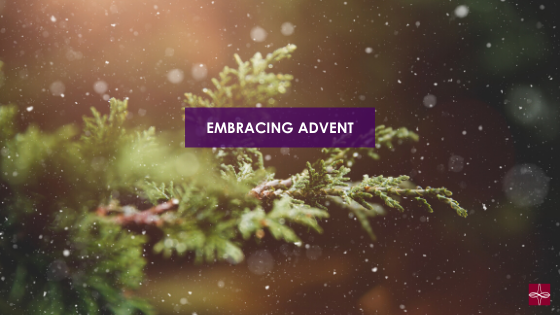



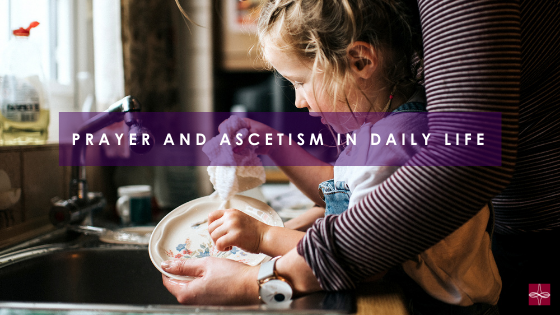




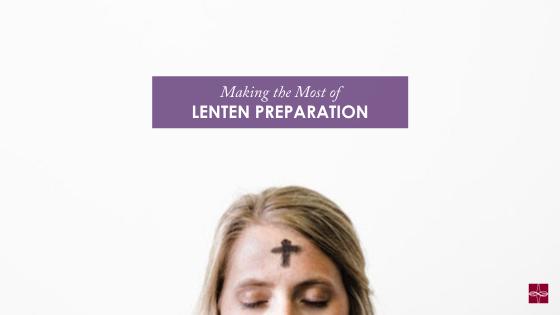
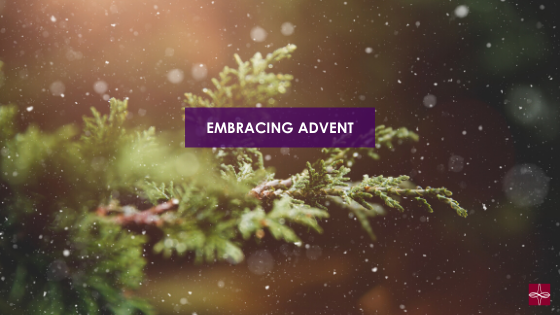

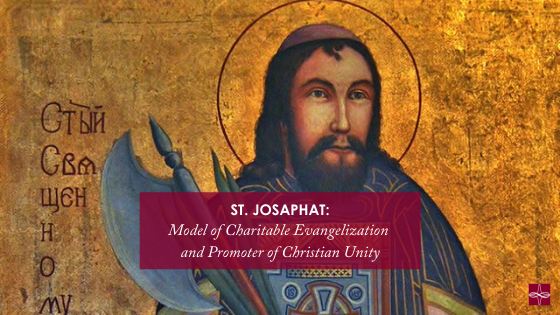

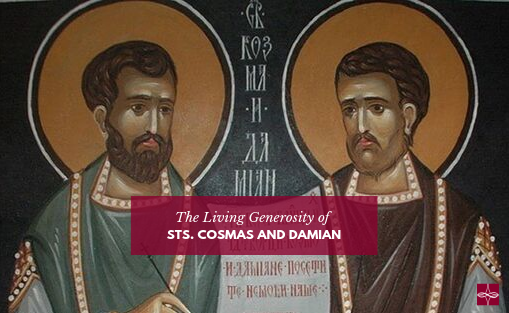

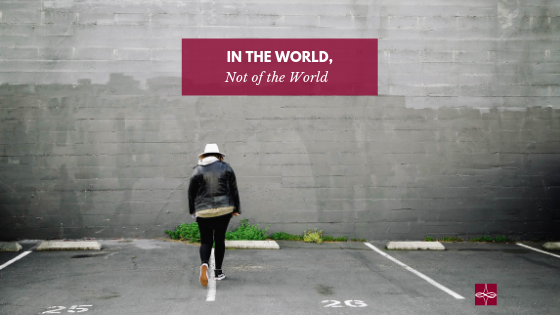

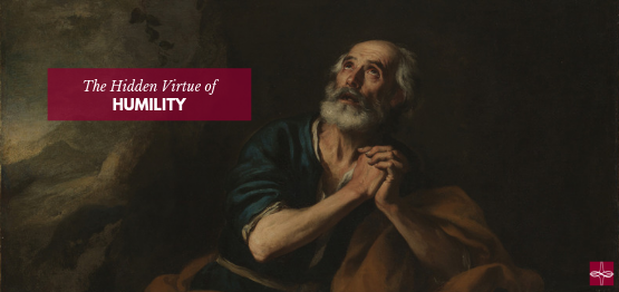

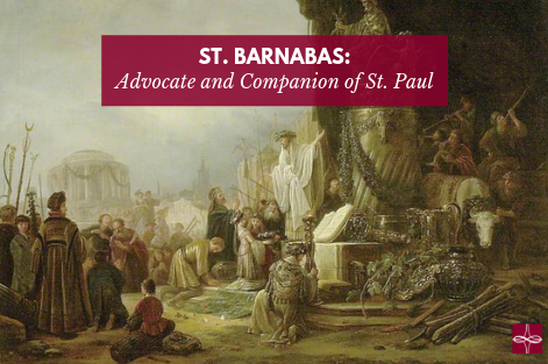

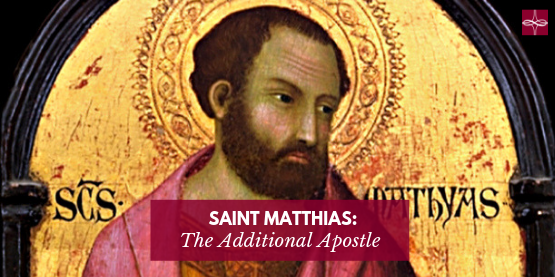





 RSS Feed
RSS Feed